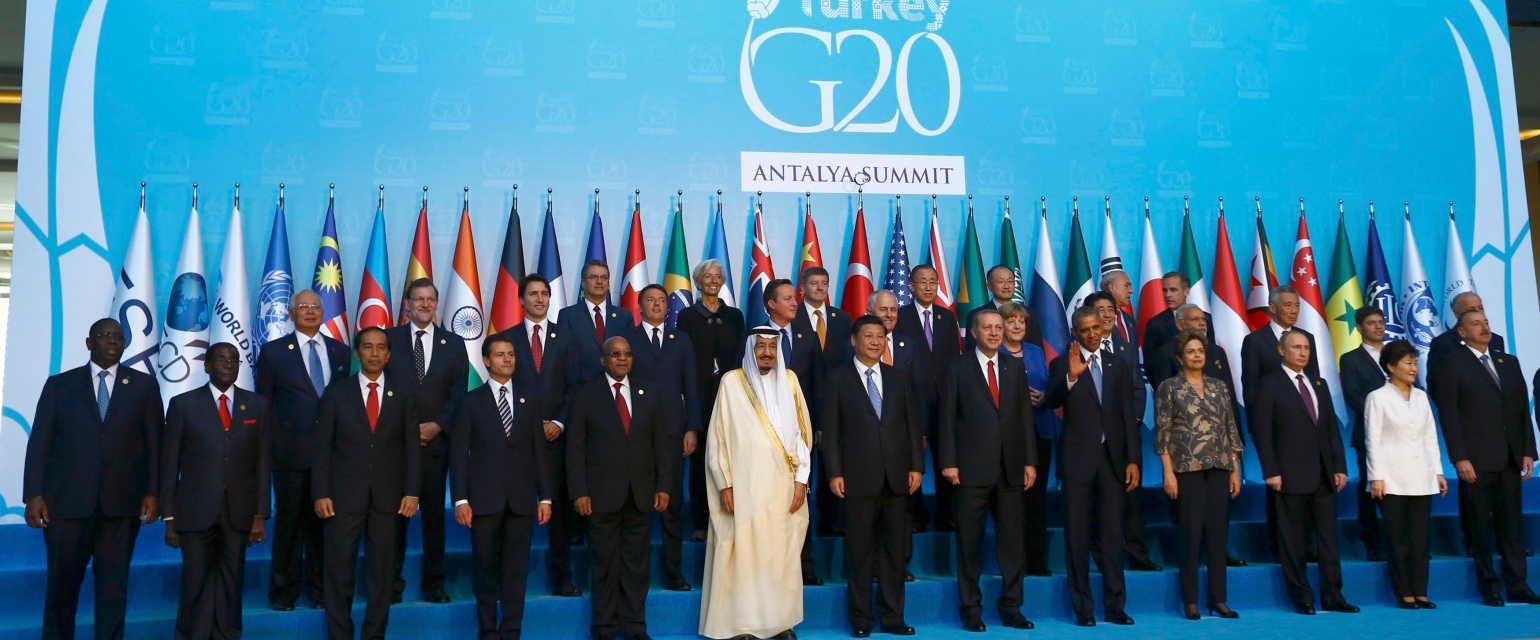

The G20 Summit in Turkey, intensification of Russian airstrikes in Syria and a glimmer of hope for an improvement in relations between Russia and the West all made headlines.
Last week was devoted to the G20 Summit in Turkey, mourning for the victims of the terror attacks in France and Egypt, and the search for a joint approach to fighting international terrorism. Despite the clear commonality of the global terrorism problem and the prospects for a joint solution, each of the great powers continues to play its own game.
Results from the G20 Summit in Turkey
On Nov. 15-16 the Turkish city of Antalya turned into the center of world politics as it played host to the G20 Summit. Although the G20 was initially an economic platform, with politics supposedly the preserve of the G8, the latter’s reversion to the G7 format means that it lacks some of its former authority to take legitimate political decisions on a global scale. So the burden has now passed to the G20.
In the wake of the recent attacks in Cairo, Beirut and Paris and the explosion on board the Russian airliner, the main topic of the forum in Antalya was international terrorism. All eyes were on Russian president Vladimir Putin, who is leading the fight.
U.S. newspaper The Wall Street Journal, which can hardly be accused of being a Kremlin sympathizer, noted that the Russian leader was “front and central throughout the whole summit in Turkey.” Taking advantage of his privileged position, Putin reiterated his previous call in September at the UN General Assembly for the world to join forces in the fight against the absolute evil that is terrorism.
“The terror attacks in Paris make it absolutely imperative for everyone to put aside all excuses, pretexts and preconditions and focus on creating a truly universal anti-terror front,” Russian Foreign Minister Sergey Lavrov said, explaining the Kremlin’s position. But Moscow’s call was not heeded, as Brussels is not prepared either to trust Moscow or to give up dividing terrorists into “good ones” and “bad ones.”
Russia needs its own Operation Wrath of God
On Nov. 20, FSB head Alexander Bortnikov officially stated that the Russian Airbus A321 had been brought down by an on board bomb. Vladimir Putin immediately vowed that all those implicated would be found and destroyed.
The Russian Defense Ministry has been instructed to intensify its operation in Syria. The number of anti-terror sorties has doubled, and terrorist positions near Raqqa have been hit with cruise missiles. It is also possible that the Russian Air Force will strike the militant group known as Wilayat Sinai (which has claimed responsibility for the bombing of the plane), following public consultations with the Egyptian authorities and private consultations with Israel.
Continue reading at Russia Direc
The beginning of Ukranian peace talks is an important step for all sides. Kremlin's stand should also be taken into account given how strongly Russia and Ukraine are connected.
The EU has not yet realized the amount of yearly grants that Ukraine’s stabilization will require if the latter turns its back on the Russian support – and the Union is not ready to provide them. There is every reason to have doubts about Kiev’s actions over the long term. The internal antagonism in Ukraine between the East and the West of the country is growing further. The US has yet to act as a stabilizing force. Russia is taking measures to ensure its risks and to avoid damage to its assets. An impetus to strike a deal may only occur when the EU feels the damage to its energy security.
In its foreign policy, Moscow is increasingly demonstrating a greater willingness to develop the bilateral format of relations with all partners, rather than participating in multilateral political processes. This focus on bilateral ties has been demonstrated by the recent meeting between the top two Russian and American diplomats – Sergey Lavrov and John Kerry – in Zurich, as well as the visit to Moscow of the Emir of Qatar, Tamim al-Thani.
Another round of talks on Iran's nuclear program between Iran and the P5+ 1 group was held in Montreux, Switzerland last week. During the talks, a compromise was reached on key issues, opening up the possibility that a framework agreement might be signed by the end of March.